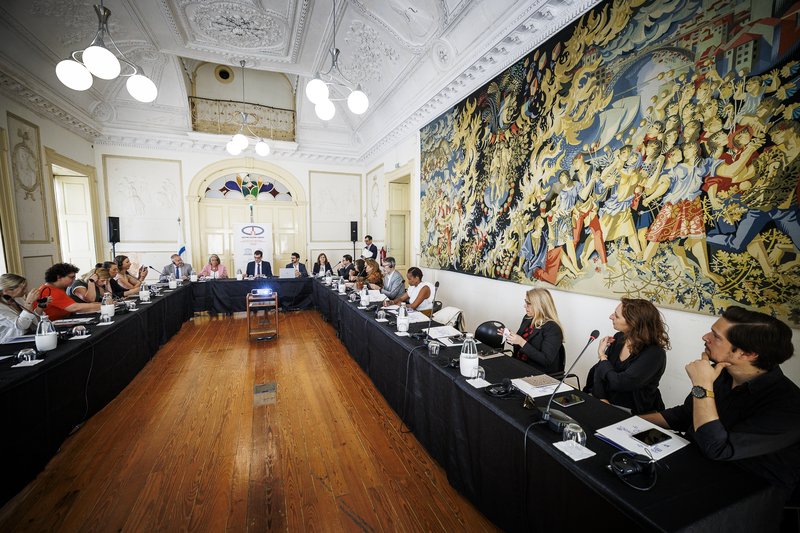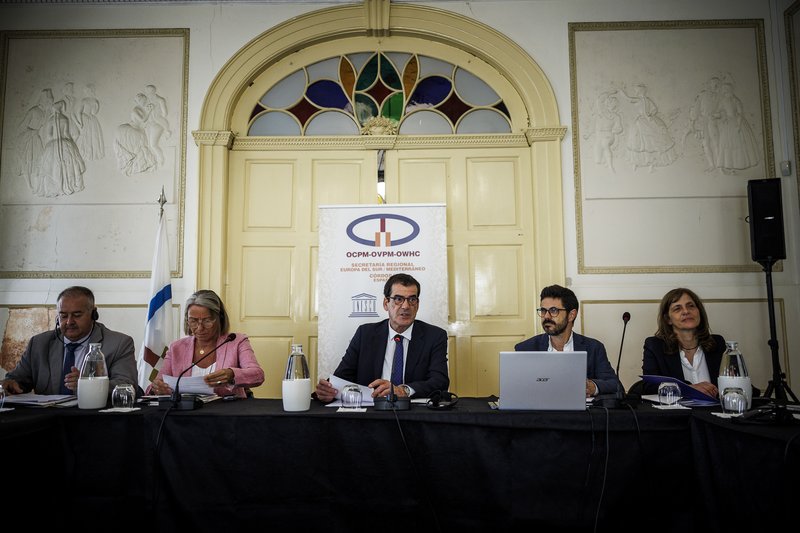World Heritage Cities strengthen cooperation for economic, social and cultural development
Article
Gathered in Porto, the 16 cities that make up the Collaborative Network on Traditional Arts and Trades for Heritage Restoration of the Regional Secretariat for Southern Europe and the Mediterranean of the Organisation of World Heritage Cities (OWHC) sought new ways to collaborate more effectively. The opening ceremony was attended by the Mayor.
'Heritage policies are fundamental to preserving the essence of a place and ensuring that the historical and cultural identity of cities is safeguarded, valued and passed on to new generations', Rui Moreira emphasised on Wednesday morning at the Viscondes de Balsemão Palace.
Understanding 'any heritage site' as a 'living and dynamic organism', the Mayor rejected 'the musealisation of World Heritage cities'. He gave the example of Porto, which 'has managed to maintain the integrity of the urban landscape of its Historic Centre', a UNESCO World Heritage Site since 1996.

Rui Moreira recalls how 'the authenticity of a unique urban fabric in the world has been preserved, thanks to a thoughtful and rigorous rehabilitation process'.
That's why he advocates 'a policy that makes heritage a factor in the transformation of cities, with a view to improving its quality of life indicators'. 'It is important to reconcile the heritage values to be preserved with the interests and needs of local communities, particularly with regard to access to decent housing', the Mayor emphasised.
Defending the urban, architectural and cultural characteristics of world heritage cities must be a means to promote the economic, social and cultural development of our cities'
For the Mayor, it is important to promote 'management that really promotes heritage preservation, without obliterating the interest of local communities or denying the specificities of each city'.
Calling for 'greater and more consistent' collaboration between the cities in the network 'on projects that reconcile heritage values with the fair expectations of communities', Rui Moreira said he considers that 'the defence of the urban, architectural and cultural characteristics of World Heritage cities must be a means and not an end. A means to promote the economic, social and cultural development of our cities'.

In Porto, the cities of Angra do Heroísmo, Aranjuez, Baeza, Ciudad Velha, Córdoba, Cuenca, Elvas, Évora, Porto, Rodas, Segovia, Sintra, Colonia de Sacramento, Dubrovnik, Quito and Vilnius approved the document to be submitted to the World Congress Symposium in Córdoba, in September.
The event was attended by the Mayor of Córdoba, José María Bellido Roche, the coordinator of the Collaborative Network, Miguel Pedro, the representative of the OWHC General Secretariat, Leticia Sánches, and the Councillors for Culture and Historical Heritage of Córdoba, Isabel Albás Vives, and for the Heritage of Baeza, Ignacio Montoro.